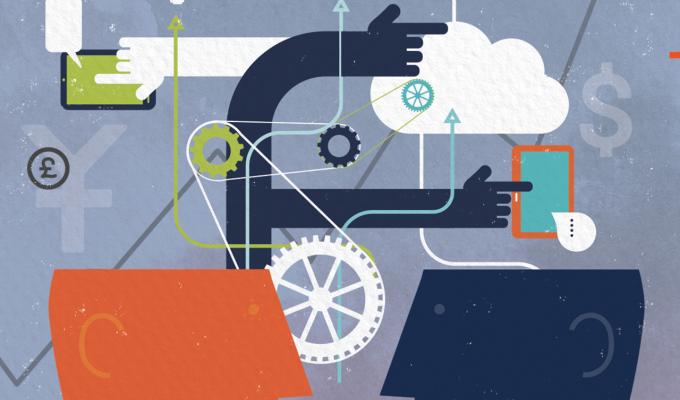According to Ernst & Young, by 2025, 75% of the global workforce will comprise of millennials, that is individuals born after 1982. A lot have been said and written about the differences between millennials and the two other generations dominant in the workforce: baby boomers and generation X. Popular press regularly publishes articles on the clash of values between the generations, leading to emergence of generational faultlines within organization. Indeed, academic research has shown that millennials are different from previous generations in terms of their work values (e.g., Smola & Sutton, 2002).
At EGADE Business School (in cooperation with the Gustavson Business School in Canada) we contribute to this stream of research and examine work orientations of millennials in various cultural settings. These are some of our most relevant findings.
Who are millennials?
First, we must explain who millennials are and how they are characterized as a group. The term “millennials” usually refers to a generation of individuals born after 1982 (Zemke et al., 2000). This cohort has been also called Generation Y or Generation Nextbut it seems that the term millennial is most commonly accepted. More broadly, a generation is a group of people born and living at about the same time,„who experience the same significant events within a given period of time” (Pilcher, 1994). What are the events for millennials? It is a political and economic liberalization of the 1990s, widespread technological advancement of the early 21stCentury, and the Great Recession, which hit global markets around the time when millennials where starting their careers. It should be stressed that within a generation individual can differ significantly, but they share significant common characteristics.
The ubiquitous social pressure
Early on in their careers, millennials make decisions influenced by parents, siblings, or closest friends, who inspire and help them choose a field, and offer emotional (and in many cases financial) support. Even when having doubts about the selected career path, social expectations and validation from one’s peers and family push millennials to continue. While social pressure is not a new effect, the digital revolution of the 21stCentury magnified its impact on the new generation.
Millennials experience substantial pressure to conform due to constant peer comparison through ubiquitous social media. The latter has been found to be a powerful stimulant of adolescent and young adult brains (e.g., Giedd, 2012) and to change the nature of social interaction and derived behaviours (e.g., Somerville, 2013). Interestingly, we found the effect of social media to be stronger in the developing economy context of China. The peer comparison continues with their careers development. The constant flow of success stories through social media puts additional pressure on the millennial to search for meaning and/or recognition in their current career. If the search for meaning is unsuccessful, the millennial starts looking for alternative career choices.
Millennials at work
In the first phase of our research, we interviewed millennials from Canada, China, and Poland to describe their work orientations and what factors influence their decisions on the job market. Surprisingly, the new generation is not driven by money or other material incentives. Contrary to popular belief, additional perks such as cool office amenities or more flexible office hours also seems to have no influence on millennials’ career decisions. If it is not about the money nor the extra benefits, what is it all about?
It turns out, the generation so embedded in the virtual worlds mostly seeks positive personal relationships at work. The most sought after feature is a positive organizational culture. Millennials also want to see their work to be impactful and meaningful, so that they can see how their work contributes to the organizational performance. The millennials we interviewed also stressed the need for extensive coaching and mentoring.
It seems the generational faultline within organizations is smaller than some thought as millennials value the experience of older colleagues and want them to share it. Interestingly, millennials also look for opportunities to share their experience, which should come as no surprise as it is a generations raised in the era of omnipresent feedback. In sum, millennials want to know why they do what they do and how can they get better at it.
Attracting and retaining talent in the new era
While all these findings are interesting for researchers, one question remains unanswered: how to attract (the easy part) and retain (the tricky one!) millennials at your organization? As always, there is good and bad news. The good news is that it does not require substantial financial investment. Unfortunately, it requires a change in mindset which for many organizations is more difficult than spending millions of dollars.
First, companies must understand that in a global world, the competition for talent is also global. Many companies realize it and has taken advantage of the global talent pool. However, the consequence they rarely foresee is the global migration of the local talent. In other words, not only you can access distant talent, but distant companies can access yourtalent pool, too. Second, be proactive and realistic in your search for talent, that is look for high potential candidates before they decide to search for a job.
Finally, there comes the question of how to keep millennialsin your organization. During the interviews, three main themes emerged: the job, the career, and the people. Millennials are less likely to quit their current organization if they can see the direct impact of their work, preferably meaningful for the society at large. The jobshould also be challenging and dynamic, thus satisfying their need for constant learning. The career plan must be clear and structured, so that they know how they will grow in the organization. Finally, the people– as already mentioned, millennials seek coaching and mentoring, therefore the older generations must be ready and willing to offer help. If these simple, yet challenging conditions are met, both millennials and your organization will thrive.




